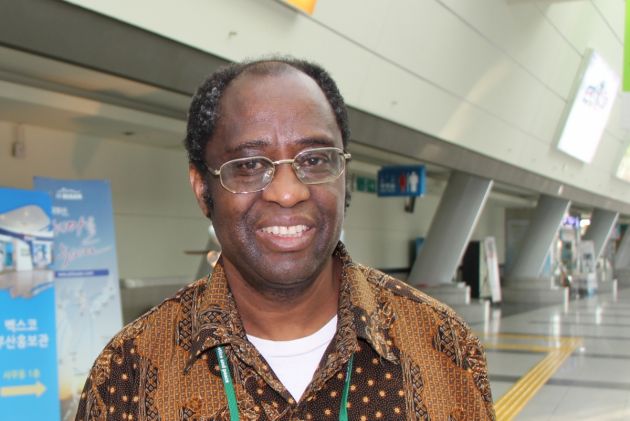World Reformed churches body moves from city of Calvin to Germany

The World Communion of Reformed Churches (WCRC) has left Geneva, often called the city of Calvin, and opened new offices in Hannover, Germany.
The WCRC moved its offices to Hannover at the end of December after 65 years in Geneva where the World Council of Churches, representing more than 500 million Christians has its headquarters.
The general secretary of the WCC, Rev. Olav Fykse Tveit, attended the January 12 inauguration of the WCRC in the German city.
"When family members find a new house and a new home, others come to visit and pray that God will bless them and their neighbours through their presence," said Tveit.
He noted that the WCC and WCRC have a "common calling and commitment to the ecumenical movement," adding, "we take this new reality as a given opportunity for all to cooperate in new ways."
Other church groupings headquartered in the WCC's Ecumenical Centre in Geneva are the Conference of European Churches and the Lutheran World Federation as well as other groups such as the World Student Christian Federation and the aid agency ACT International.
When the decision to relocate the WCRC offices was announced at the end of 2102 the body said its executive committee was responding to concerns it had about the high cost of running an organization in Switzerland.
Since the financial crisis of 2008 the Swiss franc has been used as a currency of safe haven and it has climbed steeply making Switzerland, and especially Geneva and Zurich, expensive cities from which to operate.
The WCRC said it expected to save about 200,000 Swiss francs ($222,000) a year by its move.
Some ecumenical supporters in Geneva expressed private misgivings that such an amount in savings, when currencies fluctuate, did not justify a moved to a city in Germany's north often seen as a center for Lutherans.
The WCRC had also considered a move to Johannesburg in South Africa when it was discussed.
SHIFTING CHRISTIANS
Discussions on the move of the Reformed churches body also came at a time when church leaders such as a former World Council of Churches director, Rev. Wesley Granberg-Michaelson, have spoken of a massive global shift in Christian demographics to the global South.
"We are living in the most significant times of change in Christian history, depicting a shift in the presence of the world's Christians," said Granberg-Michaelson in Geneva, in September 2013.
He was speaking at a time that many Christians churches and denominations in Europe and North America have shrinking congregations while those in developing countries are growing and thriving.
Ghanaian theologian, Rev. Setri Nyomi, remains as general secretary of the WCRC, but was to have retired last year while the communion looks for his replacement.
Reformed churches have their roots in the Geneva Reformer John Calvin who lived from 1509 to 1564 and drew others similar believers to the city such as Theodore Beza, John Knox and William Farel.
Reformed churches are counted among the main traditions within Protestantism and their congregations allow a major role to the ordinary church members.
Its churches normally have interiors that are not ornate and the preaching is known for speaking to people in their everyday lives.
The Reformed Church movement had its offices in Geneva until 2013, from 1948 when the World Presbyterian Alliance (a WCRC predecessor organization) moved from Edinburgh, Scotland.
The ecumenical umbrella body of Reformed Christians has been in existence since 1875.
The opening of the WCRC's newly established office in Hannover was welcomed by the German churches in a ceremony on 12 January.
The WCRC represents 230 Reformed churches in more than 100 nations around the world, works in close cooperation with the World Council of Churches representing some 80 million people.
In June 2011 a group called the Uniting General Council (UGC) convened in Grand Rapids, Michigan to approve the merger of the then World Alliance of Reformed Churches (WARC) and the Reformed Ecumenical Council (REC).
That created the World Communion of Reformed Churches.
The new WCRC office is located at the Calvin Centre, owned by the Evangelical Reformed Church of Germany, where the German Reformed Alliance has its offices,